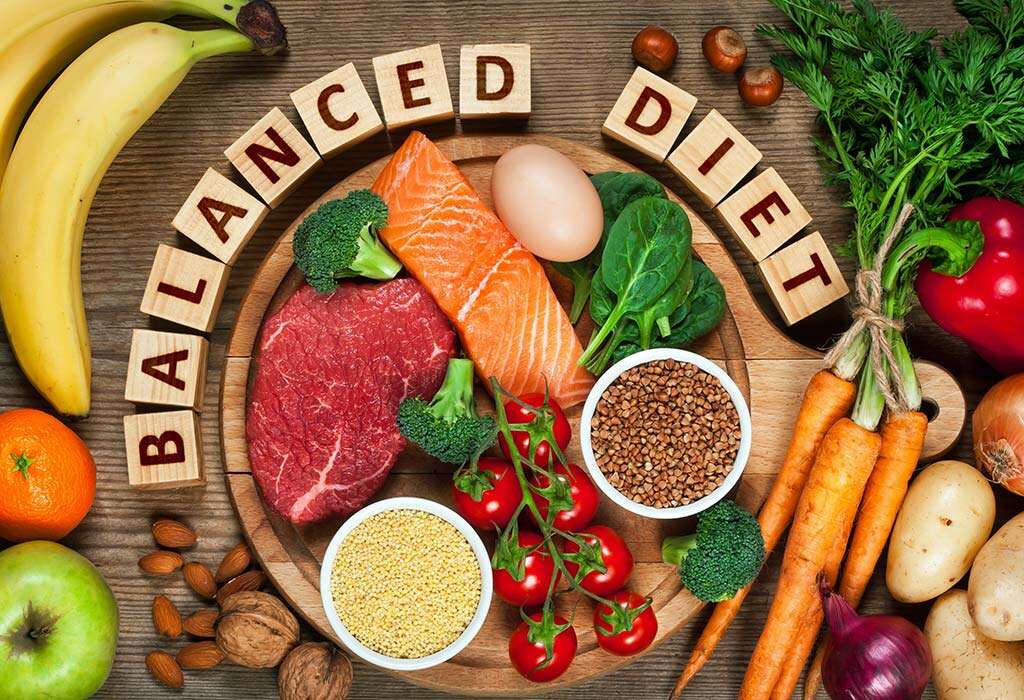When we look at a few extra kilos in our body, we feel uncomfortable with this situation, and the first impulse is to find a magic or motivation and quick solution to solve the problem.
We look for the most effective “diets“, or those that have the foods that we like the most, or the one that our friend says “gave me results and I lost weight very quickly”.
Thus many times, we try everything that seems to augur good results, and we go from “diet to diet”, without achieving anything, and feeling increasingly frustrated, for not obtaining the expected results; and if we succeed, these results are of short duration.
We must have scientific and truthful knowledge about the complex development of obesity and overweight. It is important to understand that if it were something simple to combat, it would not be a growing global problem.
Unfortunately, obesity is growing worldwide, and it is becoming increasingly difficult to combat it.
Diet is an extremely important factor when starting our fight against being overweight, for this reason, we must have a lot of knowledge and be very careful when we intend to use this tool for this combat.
In this article, we will be developing: concept and etiology of obesity, how to objectively assess nutritional status, and thus be able to determine the degree of overweight, and the risks to which we are exposed.
To determine the nutritional needs of individuals; and finally a chapter specifically on eating plans, looking at different food alternatives for the treatment of overweight and obesity.
Balanced Diets

We will begin by defining the concept of “diet“, since many times popularly, the “diet” is wrongly associated with the practice of restricting food intake to obtain only the necessary energy, to decrease body weight.
A diet is the pattern that a person follows in the habitual consumption of food.
It is accepted as a synonym of eating plan, which refers to the “set and amounts of food or food mixes that are routinely consumed”, although it may also refer to the eating pattern, which in certain circumstances, are carried out by healthy, sick or convalescent in eating and drinking.
The human diet is considered balanced if it provides the nutrients and energy in such quantities that allow the functions of the organism to be maintained in the context of physical and mental health.
This balanced diet is particular to each individual and is adapted to their sex, age, and health situation. However, there are various factors (geographic, social, economic, pathological, etc.) that influence the balance of the diet.
Importance of Balanced Diets
Those of vegetable origin (cereals and derivatives, vegetables and fruits) occupy a privileged place, meaning that they must occupy an important part of the habitual diet.
Those of animal origin occupy a smaller space. The dairy group is ranked by the contribution of calcium, a mineral that fulfills important functions in the body, such as conferring on the bones of their natural hardness.
It is recommended to select dairy and low-fat meats.
In a smaller proportion are the groups of fats, salt, sugars, and sweets. The limited space occupied by these foods recommends that the population use moderation. When the intention is to lose weight, rather than moderate, it is recommended to eliminate foods from these groups.
Lowering dietary fats is healthy.
It is also a reasonable and practical way to lower calories from food and lose weight, without altering the amounts of food that are consumed regularly.
Summarizing we could define three key concepts: variety, balance, moderation.
Remember that following an adequate diet contributes to achieving and maintaining a good nutritional state and therefore also a good state of health.
What foods to choose?
Group of cereals and legumes: This group includes cereals (rice, oats, corn starch, noodles, corn, and wheat flour), legumes (chickpeas, beans, lentils, beans), yeast doughs or low-fat baking powder.
It is recommended to select foods from this group in its different presentations, preferably in its integral forms.
Group of vegetables and fruits
They are all indicated. Since time immemorial man has used plants to prevent and cure diseases, so the daily consumption of these foods are considered highly healthy. All people should consume at least 5 servings a day between vegetables and fruits, preferably in season.
Milk and cheese group
It should be included daily for its calcium supply. Skim or semi-skim milk and yogurt and lean, ricotta or cottage cheese without cream should be selected.
Regarding grated cheese, if used, it should be done in minimal amounts, only as a condiment, since it contains more fat and a lot of sodium.
Meat and eggs group:
Meats: The preferred meat is fish, and any type can be selected. With respect to beef, the leanest cuts (shoulder, entrails, sirloin, buttock, wheel) will be selected, removing the visible fat.
The skin and fat must be removed from the chicken, preferring the consumption of breast.
Regular consumption of high-fat meats such as pork and lamb is discouraged. In the case of consuming them, it is necessary to select pulps (avoid the ribs) and forms of preparation that do not include fat, for example, grilled.
Cold meats and sausages: They should not be consumed due to their high-fat content. If consumed, it will be done occasionally, selecting the leanest (tenderloin, low-fat shoulder) and in small quantities.
The consumption of sausages is contraindicated.
Eggs: The whites can be eaten daily, are fat-free and have the advantage of admitting various forms of preparation. Regarding the yolks, the indicated weekly consumption frequency must be respected (no more than a week).
Group of sugars and sweets: Its consumption is not recommended. They can be replaced by artificial sweeteners.
Group of oils and fats: The consumption of solid fats (butter, margarine, double cream) is not recommended.
Regarding oils, olive, rice, sunflower, high oleic sunflower, soybeans, and grapes will be selected combining or alternating with olive oil.
Seeds: Walnuts, hazelnuts, almonds, peanuts, avocado, flax, sesame, sunflower, and squash poppy seeds have a fatty acid profile that helps to achieve a balance in dietary fats. The amounts to consume should be small since they are very caloric.
How to prepare food?
Here are some ideas on different ways in which food can be prepared, with the aim of facilitating a varied diet.
Forms of preparation that include non-recommended foods or an excess of them, such as fried foods or confectionery products, should be eliminated.
Group of cereals and legumes
Boiled, with oil, in cold or hot salads, with vegetable or diet sauces, with pesto, casserole with the indicated vegetables and meats.
Allowed doughs: They are made with white and integral flour and as liquid elements, oil in minimal amounts, water and whole or skim milk. They can be used for the preparation of pizzas and vegetable or fish tarts.
Group of vegetables and fruits
Raw or cooked vegetables, in cold or hot salads, in puddings, soufflés, cakes, baked croquettes, soups, and fillings. Natural fruits, in salads, compotes, baked, with dietary gelatin.
Group of milk and cheeses
Single milk, raw or cooked, integrated into preparations such as diet white sauce or vegetable puddings. Ricotta and yogurt alone or added to fish or vegetable preparations. In diet desserts with fruit or gelatin.
Group of meats and eggs
Lean meats: Boiled, grilled, grilled, baked, in oven preparations such as puddings, croquettes, hamburgers, cakes, or patties, in hot peppers, casserole, in vegetable fillings.
Eggs: Hard-boiled, soft-boiled, poached, forming part of preparations with other indicated foods.
Group of sugars and sweets
Diet desserts: They are made with the allowed ingredients avoiding the addition of fatty foods and sugar. You can use the naturally sweet flavor of the fruits by enhancing it with condiments or use an artificial sweetener. If you are going to cook it, it is convenient to use sucralose.
Group of oils and fats
The oils should be added raw to the preparations once prompt, exposing them to the fire only when they are used to prepare the doughs, to jump, to sauté or to spread the oven containers. In these cases where the temperature is going to rise, it is recommended to use high oleic sunflower oil.
Best Recommendations
It must contain fewer calories than the person is used to eating. Propose a progressive decrease in the usual portion until it is reduced by 20% initially with respect to the starting point.
For example, if it was customary to eat, move on to eat 4 or 3; if you used to eat 3 slices of pizza, go on to eat 2 and so on with all the food, except vegetables, which can continue to be eaten in abundance. In this case, what you have to control is the added dressing: oil or mayonnaise.
It is important to keep in mind that contrary to what is commonly believed, the more overweight, the greater the calorie consumption the body admits to lower. Conversely, at less overweight or aesthetically overweight, calorie restriction should be accentuated.
Measurements
Balanced: For this, it will include all the food groups: fruits and vegetables, cereals, and legumes, dairy products, meats and eggs, good quality fats in reduced quantity and sporadic sweets.
Varied: It is suggested to choose fresh foods from each season, and to include new foods. Choose different preparations that are enjoyable. The variation ensures, in addition to the balance of nutrients, the continuity in carrying out the plan.
Tasty and with a nice presentation: It is important to spend time preparing food, in order to achieve dishes with flavor, smell, aroma and appetizing presentation. For this, there is a whole range of aromatic herbs and natural seasonings that provide great flavor. For sweet flavors, use artificial sweeteners.
Distributed in more than 4 meals, from 6 to 9 per day. It is recommended not to allow more than 3 to 4 hours to pass between each of them, nor less than 1 1/2 hours, and to start the day with breakfast within the first hour after rising.
Abundant in liquids: These help to achieve satiety. Where there is more liquid, there is less appetite. It is recommended to drink before, during and after meals and exercise, so that the liquid is distributed throughout the day. Those that generate more satiety are liquids at hot temperatures, like teas; those with salty flavors like vegetable broth. Diet gelatine is also a good resource, as a variant with greater consistency.
Diet Tips

Drink plenty of fluids than allowed.
Take time to eat, don’t eat while reading or watching television.
Chew each bite several times, at least 15.
Avoid prolonged periods of fasting. Make the four conventional meals (breakfast, lunch, snack, and dinner) and a snack between meals.
Always eat lunch and dinner with a portion of raw or cooked vegetables in soups, sauteed or natural seasoned with oil, vinegar, and aromatic herbs.
Do not improvise, organize yourself to have the indicated foods ready or semi-prepared, avoid tempting yourself with foods that do not favor you.
Bring to the table only the food necessary for that meal, in the indicated quantities.
Reduce the consumption of fats by selecting foods with low-fat content and eliminating the forms of preparation that increase them, for example, frying and battering. Be aware of the number of hydrogenated fats contained in the foods you eat.
Eliminate “empty” calories from the diet, do not consume foods from the sugar group (sweets, sweets, sugary drinks).
Do not consume alcoholic beverages.
Vegetarian Diet

The fact of having a vegetarian diet does not guarantee staying at the right weight, but on the contrary, in communities where the vegetarian diet means the eating pattern, there is also a lot of obesity.
The question that frequently arises is: How can there be obesity, where the diet is based on vegetables and fruits?
The answer is simple: there is an excess in the consumption of the different types of starches, both in quantity and frequency, which affects the total calories consumed. As meat is not consumed, it tends to ingest excess doughs (in cakes), pasta, rice, potatoes, sweet potatoes, lentils, peas and corn, among other things.
Our suggestion, therefore, is to choose foods in the right amounts and combinations. Distributing the daily diet in 6 or more meals.
Food that should not be missing
Dairy: 3 servings daily. Select between low-fat milk or yogurt and low-fat, board or cut cheeses.
Eggs: 1 unit daily plus 1 egg white.
Vegetables: 2 to 4 servings daily, choosing all kinds and colors, especially yellow and oranges, such as squash, squash, zucchini and carrots, and deep greens such as spinach, chard, lettuce, and broccoli.
Legumes: lentils and peas, 4 times a week, from ½ cup to 1 cooked.
Rice: brown, 3 times a week, ½ cup cooked.
Fruits: 3 servings daily. You should not miss 2 citrus fruits per day: orange, tangerine, grapefruit, lemon, strawberries or kiwi.
Bread: wholemeal or cereal
Jams or sweets: no added candy
Brewer’s yeast: 2 tablets daily of any brand
Dried fruits: 2 whole walnuts or 6 hazelnuts, almonds or chestnuts.
Wheat germ: 2 tablespoons.
Oil: olive, high oleic sunflower or soy
Suggestions for some food combinations that optimize the nutritional value of protein
Yogurt with wheat germ or nuts
Brown rice with dairy or legumes
Whole wheat bread with mozzarella
Spinach with egg and walnuts or with cheese
Lentils with pumpkin
White cheese with walnuts
Salad or mashed potatoes with egg and yogurt, milk or white cheese
Vegetables with cheese
Cheese and vegetable or cheese and legume omelet
Cucumbers with yogurt.
Breakfast
1 orange
Infusion with skim milk
Toast with white cheese and low sugar jam
2 tablets of brewer’s yeast
Midmorning
1 low-fat yogurt with wheat germ
lunch
Vegetable soup
Vegetables assorted with brown rice, seasoned with oil
1 fresh fruit
Mid-afternoon
1 yogurt with cereals
Snack
Milk with vanilla
Pita bread with cheese and jam without sugar
Dinner
Vegetable cream soup Vegetable
tart with whole dough or
- 1 portion of whole wheat pasta with olive and grated cheese
- preparation with whole eggs, omelets, scrambled eggs or omelets or legume preparations, in casseroles or salads
1 light dairy dessert.
Mediterranean Diet

When observing that the inhabitants of the countries bathed by the Mediterranean Sea had a lower prevalence of cardiovascular diseases and chronic diseases, and had a greater life expectancy than populations from the rest of the world, research on the eating pattern of these populations began.
This phenomenon did not depend on the level of education, nor on the social situation or purchasing power, so everything suggested that it was about diet and was related to eating habits for staying healthy.
In the 1950s, some scientists began to observe the diet of these populations, and established that the characteristics of this diet were:
Regular consumption of cereals, legumes, fresh fruits, vegetables, fish, olive oil and nuts,
Moderate consumption of dairy products (especially yogurt and cheese), eggs and poultry meat, and
Infrequent consumption of pork, lamb, and beef. They moderately included wine in the diet and seasoned their dishes with spices such as garlic, onion, oregano, basil, and pepper.
Other studies attributed the beneficial effects of this type of diet to the proportion of fat and different fatty acids, showing how in the countries of northern Europe, whose consumption of saturated fatty acids is predominant, there was higher mortality from coronary heart disease.
It also verified the relationship of high blood cholesterol levels with the highest incidence of myocardial infarction.
Curiously, in countries such as Spain and France, fat consumption is high, even exceeding the recommended amount (25-35% of the total energy consumed), but these fats are largely monounsaturated, due to the significant consumption of olive oil.
Currently, multiple investigations have been carried out and have been published in various scientific journals and the results have been presented at symposiums and congresses, but interest in the virtues of Mediterranean food is becoming increasingly popular.
The most characteristic foods of the Mediterranean diet are:
Olive oil, widely used in Mediterranean cuisine, is rich in monounsaturated fatty acids. Many studies have shown that these fatty acids regulate the blood proportions of HDL (“good cholesterol”) and LDL (“bad cholesterol”), having a protective effect against the formation of atheroma plaques in the arteries.
In Mediterranean cuisine, olive or seed oil is used to cook and flavor dishes, unlike butter and other animal fats used in other countries such as Northern Europe.
Likewise, the slices of bread are consumed alone or with olive oil and not smeared with butter, cocoa butter or other fats.
Fish, also characteristic of the Mediterranean diet and whose fat is beneficial for health. Studies carried out in the Eskimo populations of Greenland, whose diet was practically based on fish and did not consume vegetable fats, showed how the low incidence of cardiovascular diseases in this population was due to the polyunsaturated fatty acids of the fish and more specifically of the Omega 3. These components increase HDL and decrease LDL.
Legumes, cereals (rice, pasta, many of them whole), fruits and vegetables, contribute to the Mediterranean diet in addition to variety, vitamins, minerals, antioxidants, fiber, and complex carbohydrates.
The Mediterranean Diet can be considered, one of the best options, when opting for an eating pattern since it provides a high content of minerals and vitamins, and for its important balance of fatty acids, which makes it very favorable in the prevention of cardiovascular diseases.




